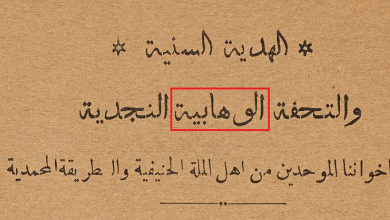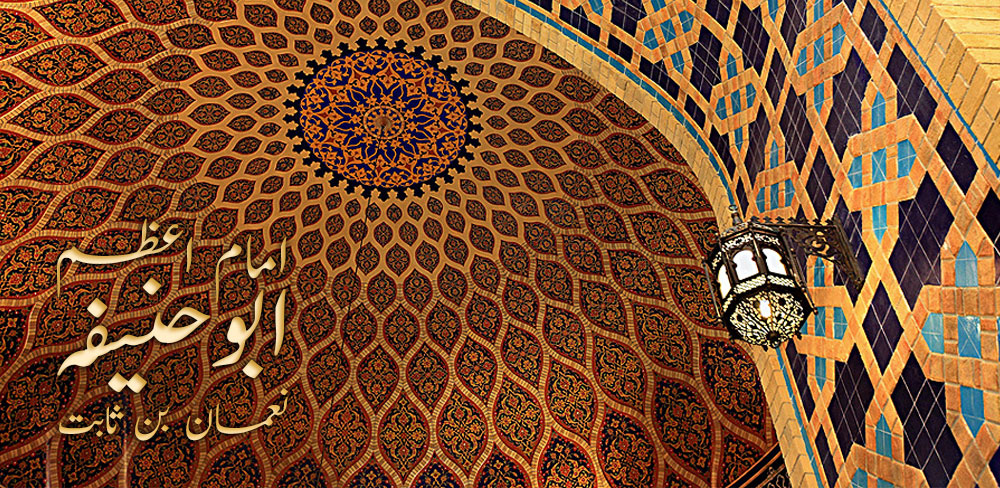The Life and Works of the Hanafī Jurist and Hadīth Scholar Qāsim ibn Qutlūbughā
The Life and Works of the Hanafī Jurist and Hadīth Scholar Qāsim ibn Qutlūbughā
By Shaykh Muhammad ‘Awwāmah
Translated by Muntasir Zaman
Introduction
His name is Zayn al-Dīn Abū al-‘Adl Qāsim ibn Qutlūbughā al-Jamālī al-Hanafī, better known as ‘Allāmah Qāsim. He was born in Cairo in 802 AH where he lived until his demise in Rabī‘ al-Ākhir 879 AH. Growing up as an orphan, he began his studies at a tender age and would occupy himself with tailoring, but eventually focused on acquiring knowledge – after exerting himself therein, he shone and showed brilliance. He began his literary career early, authoring his first book at the age of 18 on inheritance. From a galaxy of teachers, his most prominent teacher in Hadīth was Hāfiẓ Ibn Hajar and in Fiqh and legal theory Sirāj al-Dīn Qāri’ al-Hidāyah and al-Kamāl Ibn al-Humām. His student Hāfiẓ al-Sakhāwī said:
His dedication increased by frequenting the company of Ibn al-Humām. From 825 AH to Ibn al-Humām’s demise in 861 AH, he studied every book that was taught in his circle and learnt the most from him. The books he studied include the first quarter of his commentary on al-Hidāyah, part of Tawdīh of Sadr al-Sharī‘ah, and the entire al-Musāyarah (of Ibn al-Humām). […] He also studied books of Arabic literature and poetry, memorizing a significant portion thereof.[1]
Academic standing
His teachers respected him due to his academic excellence. For instance, Hāfiẓ Ibn Hajar authored al-Īthār bi Ma‘rifat Rijāl al-Āthār upon his request to compile a book on the transmitters in Imām Muhammad’s Kitāb al-Āthār. He then – at the age of 33 – studied it under Ibn Hajar, who authorized and described him as, “The eminent Shaykh, the qualified and unique Hadīth scholar. He contributed [to the class] and shared his observations on several places that were noted down and further illuminated the book.”[2] Later on in another occasion, he described him as “The authority, the learned, the Hadīth scholar, the jurist, and the prolific memorizer.” Bear in mind that the one conferring these accolades is Hāfiẓ Ibn Hajar, who requires no introduction. Al-Sakhāwī said:
A learned scholar with a significant command of the various sciences, who has a repertoire of memorized literature and is skillfully aware of the legal rulings of his school – including the many finer detail therein – and advanced in the field; he is articulate and proficient in debating and silencing his interlocutors […] I heard him say that he collected the unique narrations or narrators from [Sunan] al-Dāraqutnī that are not found in the six major Hadīth books from memory.[3]
His books bear testimony to his expertise in Fiqh and Hadīth. He supplemented what the likes of Imāms al-Zayla‘ī, al-‘Irāqī, and Ibn Hajar – whose memory and scope is well-known – were unable to locate. In Munyat al-Alma‘ī, he located the narrations al-Zayla‘ī missed in his takhrīj of al-Hidāyah; in Ithāf al-Ahyā’, he located what al-‘Irāqī missed in his takhrīj of al-Ihyā’; and in his notes on al-Dirāyah and parts of Munyat al-Alma‘ī, he located what Ibn Hajar missed in al-Dirāyah, which is an abridgment of Nasb al-Rāyah.
“Despite his prestige, he did not assume a suitable post; he spent most of his life in the Ashrafiyyah Sūfī lodge. At times, he was sought after by kings and emirs, but he would not allow that to affect him; instead he would hasten to spend.”[4]
Works
‘Allāmah Qāsim was a prolific writer: between short treatises and voluminous compendia, he penned over 80 books, some of which he never managed to complete. His student and chief biographer Hāfiẓ al-Sakhāwī enumerated 87 books in various fields, mostly in Hadīth, its branches, and transmitters, and then in Fiqh. That is only the number he came across, not the total number. Unfortunately, only a fraction of these books was published even though most of them deserve to be published for specialists in Hadīth and Fiqh, particularly his takhrīj works on the famous books in circulation. [At the time of writing this biography] Three of his works were published: (1) Tāj al-Tarājim, brief biographies of Hanafī authors; (2) a gloss on Ibn al-Humām’s al-Musāyarah – al-Sakhāwī did not mention this; and (3) Munyat al-Alma‘ī fī mā Fāt min Takhrīj Ahādīth al-Hidāyah li al-Zayla‘ī.[5]
Students
He did not have many students. This was a result of his scholarly feud with his contemporaries that forced him into seclusion; he was even harmed by the few who studied and benefitted from him. But this seclusion allowed him to write and contribute extensively. Some of his students are: (1) Shams al-Dīn Muhammad ibn ‘Umar al-Maghribī, who studied Fiqh and legal theory from him; (2) Shams al-Dīn Muhammad ibn ‘Abd al-Rahmān al-Sakhāwī, the well-known Hāfiẓ who said, “I sat in his company early on and heard from him – with my father – the musalsal, which he heard from al-Wāsitī, noted many of his poetry and observations, and I read to him Sharh Alfiyyat al-‘Irāqī;” (3) Sharaf al-Dīn Yahyā al-Munāwī, who is mentioned among the students of Ibn al-Humām; (4) Badr al-Dīn al-Hasan ibn ‘Alī al-Sawwāf al-Hamawī al-Qāhirī al-Hanafi; and (5) Muhibb al-Dīn ibn Muhammad Ibn Shihnah.
These five were also his classmates when they studied under Ibn al-Humām and others; yet they studied under him, and among them are those who are older than him, which is a sign of his excellence and brilliance. As a result, Ibn al-Humām chose him to be his successor. In Fayd al-Bārī, ‘Allāmah al-Kashmīrī writes, “Near his demise, Ibn al-Humām was asked who would take his seat after him, so he replied: ‘Allāmah Qāsim ibn Qutlubughā.”
Demise
Hāfiẓ al-Sakhāwī said:
For a long time he suffered from severe sickness, urinary obstruction, kidney stones, and other illnesses; he moved to several places for treatment […] until he passed away on the night of Thursday 4th of Rabī‘ al-Ākhir 879 AH. His funeral prayer was conducted the following day in a large congregation, and he was buried by the gravesite attributed to ‘Uqbah near his parents and children. People grieved over his passing. Allah have mercy on him and us.
Allah have mercy on him, reward him, and beautify his abode in the hereafter. And may He facilitate for scholars and researchers to publish the works of this Imām in a beautiful form that fits his academic stature, so that his desire to benefit and serve this pristine religion be fulfilled – that is not difficult for Allāh.
(Shaykh ‘Awwāmah, Dirāsah Hadīthiyyah Muqāranah, pp.299-303)
[1] Al-Sakhāwī, al-Daw’ al-Lāmi‘, vol.6, p.185.
[2] Ibid.
[3] Ibid.
[4] Ibid., p.188.
[5] After writing this, many of his other books were published.






